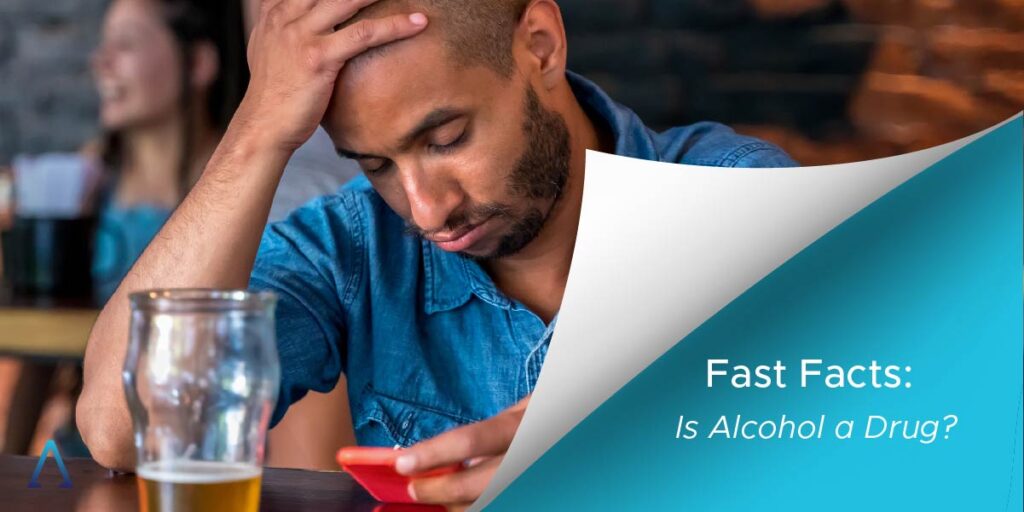The phrase “alcohol and drugs” is used often regarding addiction. Despite the two being put into separate categories colloquially, alcohol is also a drug.
Since alcohol use is so normalized, people may think of it differently than drugs like cocaine or heroin. They may have an image of a person who uses drugs, and that image may not include people who drink alcohol. However, alcohol is a drug; it is an addictive central nervous system depressant that is widely available and commonly abused.
According to the National Institute on Alcohol Abuse and Alcoholism, 14.1 million adults aged 18 or older—and 414,000 youth ages 12-17—had an alcohol use disorder in 2019. Much media attention has been given to the opioid crisis; it is serious and should be discussed. But the alcohol epidemic may be even more widespread. In the US, alcohol is the third-leading cause of preventable death.
Legal substances can be addictive and classified as drugs. For instance, the opioid crisis exists in large part because people were prescribed opioids by doctors for pain relief at high rates. Alcohol is available at bars, restaurants, and even some grocery stores—but it is still a drug.
There are many people in recovery from alcohol use disorder. Treatment, therapy, Alcoholics Anonymous (AA), Narcotics Anonymous (NA), or other support groups can all help people who struggle with alcohol use find lasting recovery.
If you are struggling with alcohol use or a mental health disorder, there is help and hope. TruHealing Centers offers high-quality treatment for addiction and mental health disorders in facilities across the country. Our staff—many of whom are in recovery themselves—will help you build healthy coping skills to thrive in long-term recovery. To learn more, call an admissions specialist at 410-593-0005.








